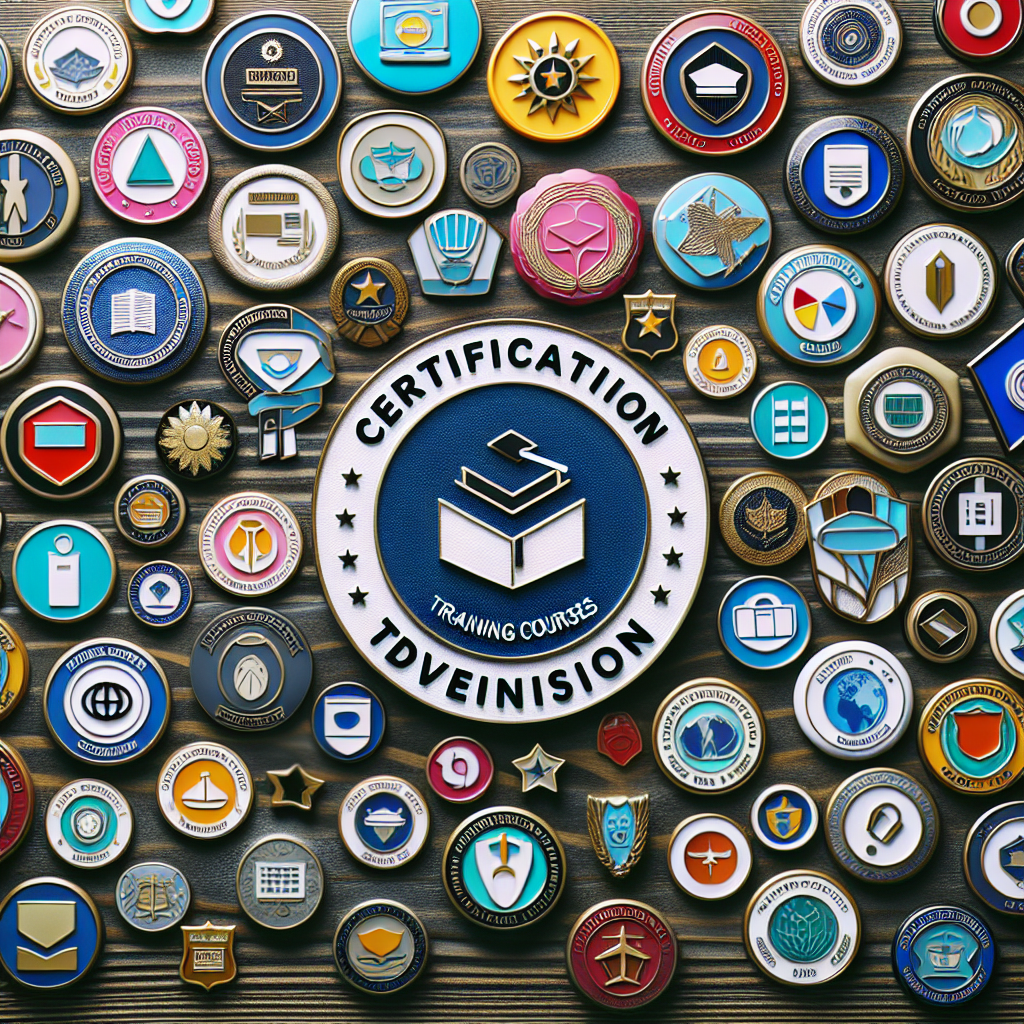Certification options for training courses

Looking to enhance your skills and credibility in the fast-paced world of jet skiing? Look no further! This article will provide you with an overview of the various certification options available for training courses in the Jet Skiing Industry. Whether you’re a beginner looking to get your feet wet or an experienced rider aiming to take your skills to the next level, we’ve got you covered. Stay tuned to discover the best certification options that will not only boost your confidence but also open doors to exciting opportunities in the world of jet skiing. Don’t miss out on the chance to become a certified expert in this exhilarating water sport!
Certification Options for Training Courses
If you’re considering taking a training course to enhance your skills and knowledge in a specific field, opting for a certification can provide numerous benefits. Not only does certification validate your expertise, but it also demonstrates your commitment to continuous learning and professional development. In this article, we will explore the different types of certifications available, the certifying organizations, the certification process, the various training course options, and how to choose the right certification for you.
Benefits of Certification
Obtaining a certification offers several advantages that can significantly impact your career. Firstly, certification enhances your credibility and validates your expertise in a particular subject matter. It serves as a tangible proof to employers, clients, and colleagues that you have achieved a certain level of proficiency. This can potentially lead to better job prospects, increased earning potential, and opportunities for career advancement.
Moreover, certification demonstrates your commitment to continuous learning and staying updated with the latest industry trends and practices. It showcases your dedication to personal and professional growth, making you a valuable asset to any organization. Additionally, certification provides you with a competitive edge over other professionals in the field, enabling you to stand out and be recognized for your skills and knowledge.
Types of Certifications
There is a wide array of certifications available across various industries and domains. These certifications cater to different skill sets and levels of expertise. Some of the common types of certifications include:
- Industry-recognized certifications: These certifications are widely respected within a specific industry and are often offered by leading professional organizations. Examples include Project Management Professional (PMP), Certified Public Accountant (CPA), and Certified Information Systems Security Professional (CISSP).
- Vendor-specific certifications: These certifications are designed to validate your proficiency in using specific software, hardware, or technologies offered by a particular vendor. Examples include Microsoft Certified Solutions Expert (MCSE), Cisco Certified Network Associate (CCNA), and Amazon Web Services Certified Solutions Architect (AWS CSA).
- Job role-based certifications: These certifications are tailored to specific job roles or occupations and are typically offered by professional associations or industry bodies. Examples include Certified ScrumMaster (CSM), Google Analytics Individual Qualification (GAIQ), and Certified Human Resources Professional (CHRP).
- Academic certifications: These certifications are typically awarded by educational institutions upon completion of a specific course or program. Examples include Technical Certificates, Associate Degrees, and Professional Certificates.
Certifying Organizations
Certifications are typically issued by recognized certifying organizations that set the standards and requirements for certification programs. These organizations ensure that the certification process adheres to industry standards and best practices. Some well-known certifying organizations include:
- Project Management Institute (PMI): PMI offers a range of certifications related to project management, such as Project Management Professional (PMP), Certified Associate in Project Management (CAPM), and PMI Agile Certified Practitioner (PMI-ACP).
- International Information Systems Security Certification Consortium (ISC)²: ISC² offers certifications in the field of cybersecurity and information security, including Certified Information Systems Security Professional (CISSP), Certified Secure Software Lifecycle Professional (CSSLP), and Systems Security Certified Practitioner (SSCP).
- American Society for Quality (ASQ): ASQ provides certifications related to quality management and process improvement, such as Certified Six Sigma Black Belt (CSSBB), Certified Quality Engineer (CQE), and Certified Manager of Quality/Organizational Excellence (CMQ/OE).
- Microsoft, Cisco, and other technology vendors: These vendors offer a range of vendor-specific certifications, including Microsoft Certified Professional (MCP), Cisco Certified Network Associate (CCNA), and Oracle Certified Professional (OCP).
These are just a few examples, and there are many other certifying organizations specific to different industries and domains.
Certification Process
The certification process typically involves several steps, which may vary depending on the certifying organization and the certification being pursued. However, the common steps involved in most certification processes are as follows:
- Eligibility: Determine if you meet the prerequisites and eligibility criteria set by the certifying organization. This may involve having a certain level of education, work experience, or completing specific training courses.
- Preparation: Prepare for the certification exam by studying the relevant materials, attending training courses, or participating in other learning activities. This step ensures that you have the necessary knowledge and skills to succeed in the exam.
- Application: Submit your application to the certifying organization, providing the required documentation such as educational certificates, work experience details, and payment of the certification fees.
- Exam: Take the certification exam, which is typically conducted either online or at designated testing centers. The exam assesses your understanding of the subject matter, and passing scores are usually required to obtain certification.
- Certification: Upon successfully passing the exam, you will receive your certification from the certifying organization. This may include a physical certificate, a digital badge, or both, depending on the certifying organization’s practices.
Training Course Options
When considering a training course, you have several options to choose from, each offering its own benefits and flexibility. The most common training course options include in-person, online, and hybrid courses.
In-Person Training Courses
In-person training courses provide a traditional classroom experience, where you attend sessions conducted by instructors in a physical location. These courses allow for direct interaction with the instructor and fellow participants, providing an immersive learning environment. In-person training courses are ideal for individuals who prefer face-to-face interactions, hands-on activities, and immediate feedback.
Online Training Courses
Online training courses offer the convenience of learning from anywhere, at any time, as long as you have an internet connection. These courses are usually self-paced, allowing you to study at your own speed and convenience. Online courses often provide multimedia resources, such as video lectures, interactive quizzes, and discussion forums, to enhance the learning experience. This flexibility makes online training courses a popular choice for busy professionals or those unable to attend physical classes.
Hybrid Training Courses
Hybrid training courses blend the advantages of both in-person and online learning. These courses typically involve a combination of online self-paced modules and in-person workshops or seminars. Hybrid courses offer the flexibility of online learning while also providing opportunities for face-to-face interaction and hands-on practice. This format allows for greater customization and personalization of the learning experience.
Duration of Training Courses
The duration of training courses can vary significantly depending on the complexity of the subject matter and the depth of knowledge being covered. Some training courses may be completed in a matter of days or weeks, while others may span several months or even a year. It is essential to consider your own schedule and commitments when choosing a training course, ensuring that you have enough time to dedicate to the learning process and successfully complete the course requirements.
Choosing the Right Certification
When selecting a certification, it is crucial to consider your career goals, industry requirements, and personal interests. Research the market demand for specific certifications and assess how obtaining the certification aligns with your career aspirations. Consider the relevance of the certification to your current or desired job role, as well as the potential for career growth and advancement. Additionally, evaluate the credibility and reputation of the certifying organization to ensure that the certification holds value within the industry.
In conclusion, certifications can significantly enhance your professional profile and open doors to various career opportunities. By investing in training courses and obtaining certifications, you demonstrate your dedication to continuous learning and improvement. Whether you choose an in-person, online, or hybrid training course, the certification process and the benefits of certification remain consistent. Choose certifications that align with your career goals and interests, and remember that the right certification can pave the way for a successful and fulfilling professional journey.










